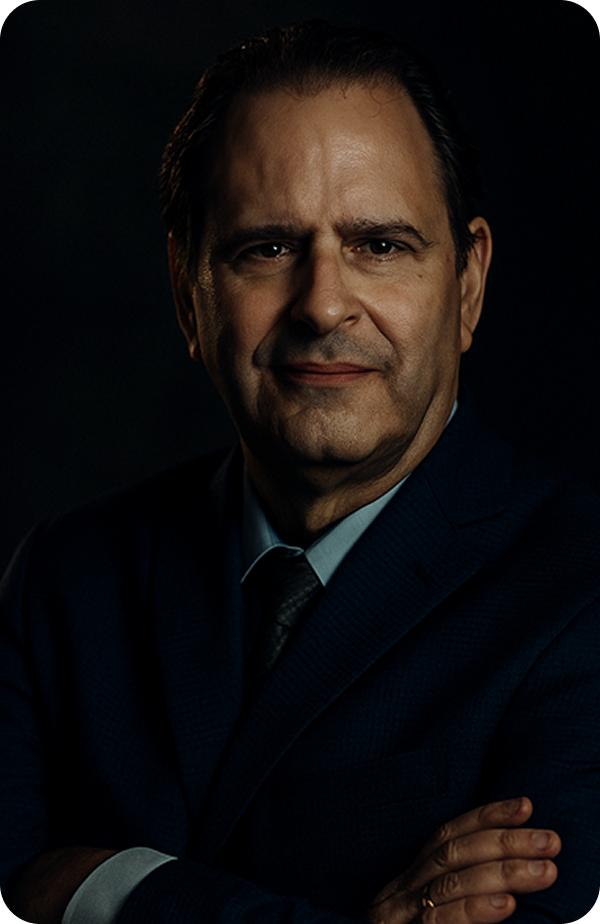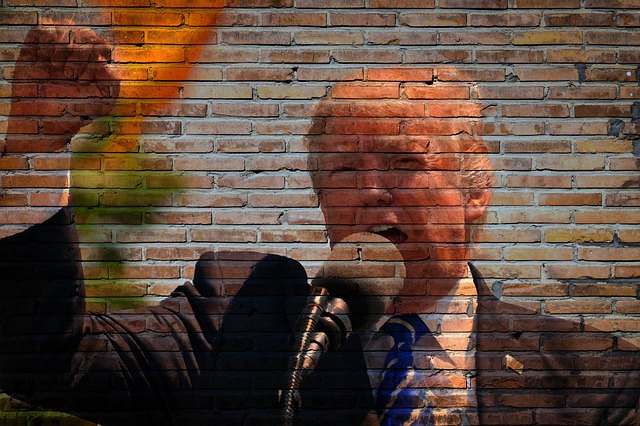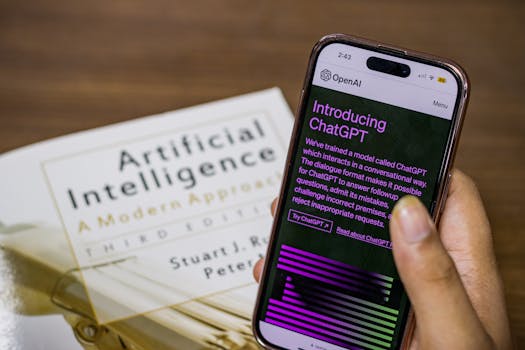The president and the White House have announced a series of changes to the H-1B visa program, reflecting the administration’s focus on favoring highly skilled workers and prioritizing American jobs. The Trump administration’s immigration agenda aligns with a recently published DHS rule in the Federal Register to replace the random H-1B lottery with a weighted (wage-based) selection process, combined with a possible $100,000 filing fee as a new fee for applicants, and tighter enforcement. These changes would have a significant impact on tech companies and other industries that rely on highly skilled foreign born workers, as well as shift the balance between American born workers and foreign born workers in the U.S. workforce. The proposal also highlights the administration’s broader approach to immigration reform, with immigration services playing a key role in processing H-1B applications. These changes would significantly impact U.S. employers, foreign professionals, and the American economy. This is particularly evident in how the Trump H1B Lottery Favors Highly Paid in 2026. The Trump H1B Lottery Favors Highly Paid in 2026 will dictate the future of many tech workers.
The Trump H1B Lottery Favors Highly Paid in 2026 will create a competitive landscape that prioritizes higher wages in the tech industry.
The H-1B program allows U.S. employers to hire foreign professionals for specialty occupations, and a bachelor’s degree or its equivalent is a minimum requirement for eligibility.
Trump H1B Lottery Favors Highly Paid in 2026: Overview
Quick FAQs: Trump Proposal to Change H-1B Lottery in 2026
The upcoming Trump H1B Lottery Favors Highly Paid in 2026 will significantly affect how employers recruit and retain top talent.
Will Trump change the H-1B lottery in 2026?Yes. The Trump administration supports replacing the random lottery with a wage-based selection system starting in 2026.
With the Trump H1B Lottery Favors Highly Paid in 2026, companies must adapt their hiring strategies to comply with new wage criteria.
What is the new H-1B lottery system?DHS has proposed a weighted lottery where higher-paying jobs receive more entries, giving them better odds of selection.
How would the new system impact employers?Employers offering higher salaries gain an advantage, while start ups and small businesses may struggle to compete due to increased costs. Big companies, such as Amazon, Google, and Meta, may be better positioned to absorb these costs and continue hiring foreign employees. The higher costs could also impact the ability of companies to hire and retain employees under the H-1B program.
The changes in the Trump H1B Lottery Favors Highly Paid in 2026 could lead to greater disparities between large corporations and smaller firms.
What does this mean for foreign workers?High-wage professionals would have improved chances, but entry-level workers and recent graduates would face reduced odds.
When will the H-1B lottery changes take effect?If finalized, the wage-based system would begin with the Fiscal Year 2027 lottery, held in March 2026. The changes and any new fee requirements will apply to future applicants, not to current visa holders or those with a current visa.
Are there alternatives to the H-1B visa under Trump’s reforms?Yes. Options include L-1, O-1, and TN visas, as well as EB green card categories like EB-1A and EB-2 NIW.
How does the $100,000 filing fee proposal fit into the H-1B changes?The proposed $100,000 payment is a one-time cost for new H-1B applicants and does not affect individuals with a current visa. This payment would increase the overall costs for companies seeking to hire foreign workers, especially impacting start ups and smaller businesses, while big companies may be more able to manage these additional expenses. Future applicants will need to account for this fee, but current visa holders are not subject to the new payment.
Employers should prepare for how the Trump H1B Lottery Favors Highly Paid in 2026 will affect their recruitment and compliance processes.
The Trump H1B Lottery Favors Highly Paid in 2026 will be a game-changer for highly skilled professionals.
Image depicting the implications of the Trump H1B Lottery Favors Highly Paid in 2026.
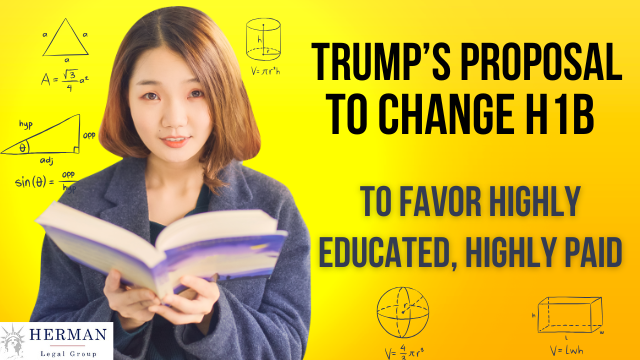
What Is the Current H-1B Lottery System?
The H-1B visa program allows U.S. employers to hire foreign professionals in “specialty occupations.” To qualify, applicants must have at least a bachelor’s degree or its equivalent in a related field. The program is a key pathway for legal immigration, enabling companies—especially in tech and other industries—to sponsor high skilled workers from abroad. Because demand exceeds the statutory cap, a random lottery system governs selection.
- Annual cap: 65,000 standard visas + 20,000 for U.S. advanced degree holders.
- Lottery mechanics: USCIS randomly draws from eligible registrations; each unique beneficiary has equal chance.
- Timeline: Registration opens in March, selections announced in April, employment begins in October.
Immigration services play a crucial role in processing H-1B applications, guiding both companies and applicants through the complex requirements.
Under the current system:
The Trump H1B Lottery Favors Highly Paid in 2026 will reshape the landscape for talent acquisition in the U.S.
“Each unique beneficiary would only be counted once … regardless of how many times the beneficiary is entered in the selection pool.” — Federal Register proposed rule
The H-1B program targets high skilled workers in specialized fields, helping U.S. companies fill critical roles that require advanced technical or academic qualifications.
For more background, see USCIS H-1B Program Overview.
Many hope the Trump H1B Lottery Favors Highly Paid in 2026 will attract more international talents seeking high wages.
Trump’s History with H-1B Visas
The Trump H1B Lottery Favors Highly Paid in 2026 means changes for all stakeholders involved.
During his first presidency, President Donald Trump imposed multiple constraints on H-1B visas:
-
- Trump signed the “Buy American, Hire American” executive order to scrutinize H-1B “abuse” and protect American workers.
Understanding the Trump H1B Lottery Favors Highly Paid in 2026 will be crucial for businesses and workers alike.
- Denial and Request for Evidence (RFE) rates surged.
- Attempted to raise prevailing wages to prioritize higher-paying jobs.
- Publicly criticized the program while acknowledging the need for “top talent.”
- Commerce Secretary Howard Lutnick made public statements about proposed H-1B fee increases, including a $100,000 fee, as part of the administration’s immigration crackdown and initiatives like the ‘gold card’ program to attract high earners and entrepreneurs.
See Congressional Research Service’s H-1B Report for a legislative overview.
What Will Change in 2026? DHS Wage-Based Selection
On September 24, 2025, the Department of Homeland Security (DHS) issued a federal register notice in the Federal Register titled “Weighted Selection Process for Registrants and Petitioners Seeking To File Cap-Subject H-1B Petitions.” This notice outlines proposed changes to H-1B visa procedures, with significant implications for tech firms that rely heavily on highly skilled foreign workers. The proposal, overseen by homeland security, also references expedited immigration pathways such as the gold card and fast track visas, which are designed to attract top-tier talent and entrepreneurs through faster processing and premium options.
With the new rules, the Trump H1B Lottery Favors Highly Paid in 2026 will require companies to reevaluate their compensation packages.
Key features:
-
- Weighted entries by wage level:– Level IV (64th percentile): 4 entries
- Level III (50th percentile): 3 entries
- Level II (34th percentile): 2 entries
The implications of the Trump H1B Lottery Favors Highly Paid in 2026 extend to many sectors needing skilled labor.
- Level I (17th percentile): 1 entry
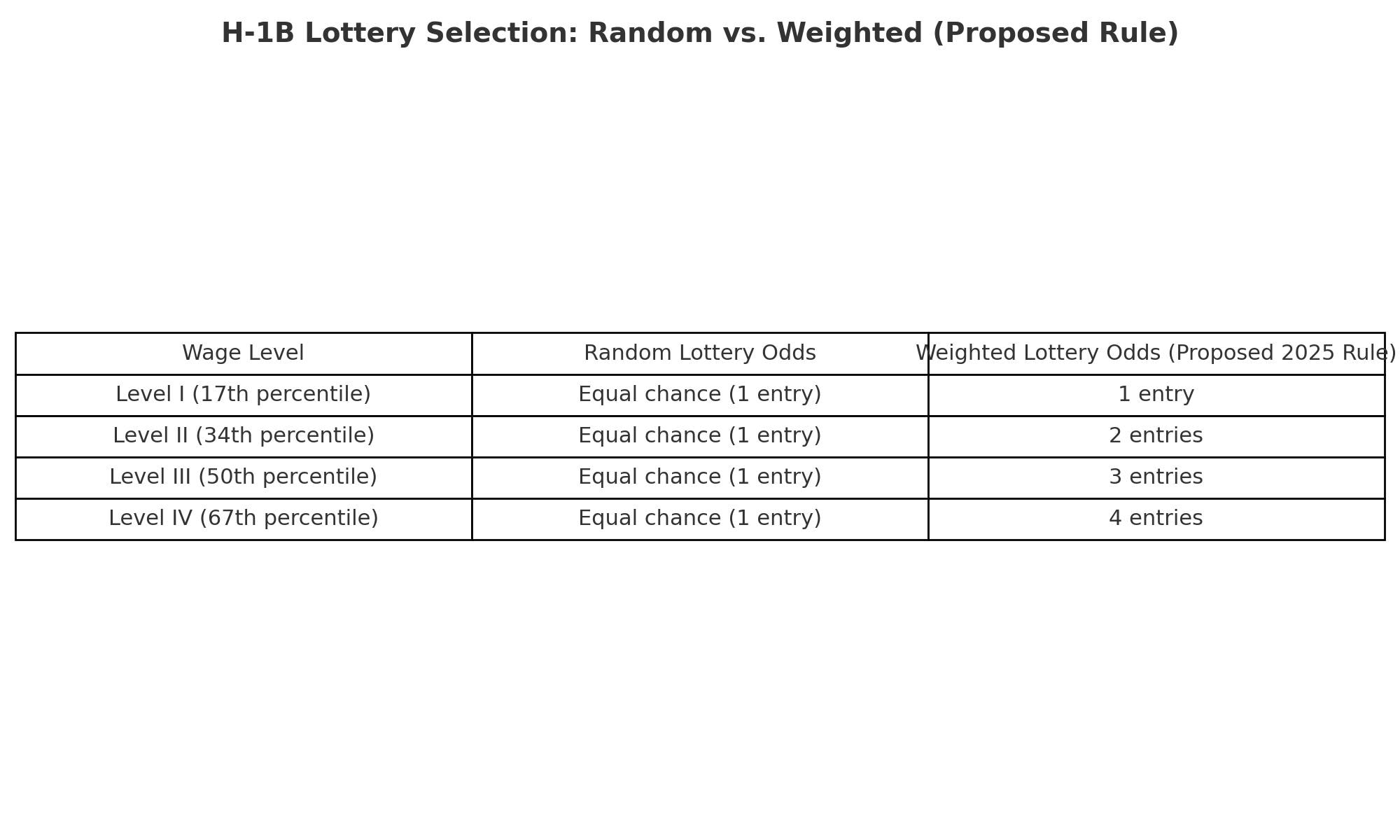
“Registrations for … wage level IV would be entered … four times, … wage level I would be entered … one time.” — Federal Register, DHS NPRM
- Wage levels are based on DOL’s Occupational Employment and Wage Statistics (OEWS).
- Employers with multiple worksites must assign the lowest wage level applicable.
- New payment and fees: A required $100,000 payment (fee) is proposed for certain H-1B visa applications, impacting both employers and workers.
- Gold card and fast track visas: Expedited processing options, such as the gold card or other fast track visas, are being considered for high-earning or extraordinary individuals willing to pay higher fees.
Public comments are open until October 24, 2025 at Regulations.gov (Docket USCIS-2025-0040).
Why Is the Lottery Targeted for Change?
According to DHS:
“Salary generally is a reasonable proxy for skill level, and prioritizing higher-paid positions … better ensures that H-1B cap visas are allocated to the most highly skilled beneficiaries.” — Federal Register, 90 FR 45986
By focusing on higher wages, the Trump H1B Lottery Favors Highly Paid in 2026 aims to enhance job quality in specialized fields.
The intent behind this policy is to attract extraordinary people and high skilled workers to the United States, ensuring that only the most qualified individuals benefit from expedited or special visa pathways. This approach aims to help the U.S. attract top-tier talent from around the world.
These changes can have a significant economic impact, particularly on industries that rely on high skilled workers, such as the tech industry. Adjustments to visa policies and fees may influence the ability of various industries to attract and retain global talent, affecting competitiveness and innovation.
Motivations
-
- Align selection with Congressional intent to favor higher-skilled workers.
The Trump H1B Lottery Favors Highly Paid in 2026 is projected to create a more competitive applicant pool.
- Correct underrepresentation of wage Levels III & IV in the random lottery.
- Incentivize employers to offer stronger wages.
- Prioritize legal immigration pathways for certain immigrants with exceptional skills, high earnings, or significant financial contributions.
Concerns
- Disadvantages for new graduates and startups unable to offer high salaries.
- Increased cost and payment burden: Higher visa application fees and associated costs may place a significant financial burden on employers and temporary foreign workers, potentially limiting access to the H-1B program.
- Gaming potential: Employers may inflate base salaries to secure higher lottery weights.
- Litigation risk: Previous wage-prioritization attempts were blocked in court.
For broader context, see Brookings analysis of H-1B visas and global talent.
How Will Changes Impact Employers?
-
- Budget pressures: Firms may need to increase wages to improve odds, but the increased cost and additional fees for each company applying for H-1B visas can significantly impact their budgets.
Companies must adapt to the realities presented by the Trump H1B Lottery Favors Highly Paid in 2026 to attract top talent.
- Compliance risks: Registrations must align with final petitions, or selection can be invalidated. Companies must also ensure timely payment of all required fees to remain compliant.
- Small businesses/startups: Start ups often struggle to compete against big companies and large firms offering Level III/IV wages, especially as higher costs and fees make it harder for smaller companies to attract foreign talent.
- Hiring impact: New fee structures and higher costs can affect a company’s ability to hire foreign workers, potentially limiting opportunities for employees and reducing workforce flexibility.
“If a beneficiary would work in multiple locations, the registrant must select the lowest applicable wage level … to avoid artificially inflating entries.” — Federal Register NPRM
How Will Changes Impact Foreign Workers?
-
- High-Wage Professionals (Levels III–IV): High skilled workers have better odds of selection.
As the Trump H1B Lottery Favors Highly Paid in 2026 unfolds, many workers will be affected by the new criteria.
- Entry-Level Workers (Level I): Odds drop nearly 50%, making it more difficult for recent college graduates to secure positions through the program.
- International Students: May pursue advanced degrees or higher-paying roles to qualify, but face additional challenges as temporary foreign workers navigating visa requirements.
Economic and Innovation Impact
-
- U.S. competitiveness risks decline if fewer early-career workers are admitted, especially in key industries such as the tech industry, which heavily relies on global talent through programs like the H-1B visa.
The Trump H1B Lottery Favors Highly Paid in 2026 will influence the hiring landscape for years to come.
- DHS acknowledges that higher-paying positions are underrepresented under current rules, affecting industries that depend on specialized skills.
- Economists (NFAP, Cato, NBER) consistently find H-1B inflows correlate with increased patents, entrepreneurship, and wage growth for U.S. workers. Notably, India has been the largest beneficiary of H-1B visas in recent years, according to government data.
See NFAP Studies, Cato Institute Research, and NBER Papers.
Legal and Policy Challenges
The anticipated changes brought by the Trump H1B Lottery Favors Highly Paid in 2026 may prompt further legal scrutiny.
-
- The Department of Homeland Security (DHS) relies on INA § 214 authority, and communicates proposed changes to immigration regulations through a federal register notice, but courts could find overreach.
- The 2021 wage-prioritization rule was vacated by courts for violating the APA, raising broader implications for legal immigration pathways and visa programs.
Many are watching how the Trump H1B Lottery Favors Highly Paid in 2026 will reshape the immigration landscape.
- DHS includes a severability clause to preserve parts of the rule if others are struck down.
See American Immigration Council’s H-1B Fact Sheet.
FAQs: Trump’s Change H-1B Lottery in 2026
Will Trump change the H-1B lottery in 2026?Yes. The Trump administration has signaled support for ending the random H-1B lottery and moving to a weighted selection process that prioritizes higher-wage roles, combined with a potential $100,000 filing fee and stricter oversight.
What is the proposed weighted selection system for H-1B visas?The DHS proposed rule would give applicants multiple entries into the lottery based on wage level. Level IV (highest salaries) would receive 4 entries, Level III would receive 3, Level II would receive 2, and Level I (entry-level wages) would receive just 1 entry.
The Trump H1B Lottery Favors Highly Paid in 2026 has sparked discussions on wage equality in the tech industry.
How is this different from the current H-1B lottery?Currently, the H-1B lottery is random. Each registration has the same chance of being selected, regardless of salary. Under the proposed weighted system, higher-paying positions would have much better odds of winning a visa slot.
Why does DHS want to change the lottery to a wage-based system?DHS argues that salary is a strong indicator of skill level. They believe the new system will better align visa selection with highly skilled, highly paid workers, while correcting imbalances that underrepresent Level III and IV roles in the random lottery.
How would the proposed change affect employers?Employers offering higher wages would have a competitive advantage. Small businesses and startups may struggle to match larger companies’ salaries, reducing their odds of securing H-1B workers. Employers will also face higher compliance requirements and possible filing fee increases.
What is the impact on foreign workers under Trump’s H-1B lottery reforms?Workers in high-salary roles (Levels III and IV) will see increased odds of selection. Entry-level workers, including many recent international graduates, will see a sharp decline in chances.
Understanding the Trump H1B Lottery Favors Highly Paid in 2026 is vital for both employers and prospective employees.
Will entry-level or lower-wage H-1B applicants still have a chance?Yes. The proposed system does not eliminate Level I or Level II workers, but their odds of selection are significantly lower compared to those in higher wage levels.
How does the $100,000 filing fee proposal fit into the H-1B changes?According to CBS News, the Trump administration has floated a one-time $100,000 filing fee for new H-1B petitions. This payment would apply only to future applicants—those who are not yet in the U.S. and plan to enter upcoming lotteries. Current visa holders would not be affected by this new fee. The payment is intended to further limit access for smaller employers and lower-salary workers.
The implications of the Trump H1B Lottery Favors Highly Paid in 2026 will be felt across various industries.
When would the H-1B lottery changes take effect?If finalized, the weighted lottery system could be implemented for the Fiscal Year 2027 cap season, meaning the first affected lottery would occur in March 2026.
Can employers or individuals provide feedback on the proposed rule?Yes. DHS is accepting public comments on the proposed weighted lottery system until October 24, 2025. Employers, universities, and advocacy groups are encouraged to submit input.
Could the H-1B weighted lottery proposal face legal challenges?Yes. Similar wage-based rules proposed in 2020 were blocked by courts for violating administrative procedure. Employers and advocacy groups are likely to challenge the new system, especially if it disadvantages small businesses and international students.
How will this proposal impact international students on F-1 visas?Students seeking to transition from OPT to H-1B may face more difficulty unless they secure higher-paying positions. This could make U.S. graduate programs less attractive compared to countries like Canada or the UK.
What alternatives to the H-1B visa exist under Trump’s reforms?Alternatives include the L-1 visa for intracompany transfers, the O-1 visa for individuals of extraordinary ability, TN visas for Canadian and Mexican professionals, and permanent residency options such as EB-1A or EB-2 NIW green cards. Additionally, some proposals have discussed introducing a gold card or fast track visas, which would allow high-earning or extraordinary individuals to expedite their immigration process, often in exchange for a substantial payment.
Why do critics oppose the weighted H-1B lottery system?Critics argue it unfairly disadvantages startups, nonprofits, and early-career workers, reduces diversity in the applicant pool, and risks pushing talent to other countries with more predictable immigration systems.
The Trump H1B Lottery Favors Highly Paid in 2026 is likely to draw more attention from international talent.
What should employers and workers do now to prepare?Employers should review salary structures, consider alternative visa options, and budget for potential fee increases. Foreign workers should seek competitive offers, explore alternative visas, and stay informed on the final outcome of the DHS rule.
Take Action Now: Protect Your Future Under the New H-1B Lottery Rules
The Department of Homeland Security’s proposed wage-based lottery rule for H-1B visas could reshape how employers and foreign professionals secure visas in 2026 and beyond. With odds of selection tied directly to wage levels, combined with the Trump administration’s proposed $100,000 filing fee and stricter compliance audits, the landscape for legal immigration and immigration services has never been more uncertain—or more high-stakes.
If you are an employer worried about losing access to global talent, or a skilled professional navigating your pathway to work in the U.S., understanding legal immigration pathways, immigration services, and the impact of payment and fees is critical. Every decision—salary structures, job offers, petition timing, and even alternative visa strategies—will affect your future.
This is where experience matters. Attorney Richard T. Herman, co-author of Immigrant, Inc., and founder of the Herman Legal Group, “The Law Firm for Immigrants”, has been at the forefront of immigration law for over 30 years. He has successfully guided thousands of employers, entrepreneurs, and foreign professionals through the most complex and rapidly changing visa rules. Richard Herman understands the stakes, the law, and—most importantly—how to protect your future.
Do not leave your career or company’s talent pipeline to chance. Get personalized legal guidance on:
-
- How the wage-based lottery will affect your odds.
With the Trump H1B Lottery Favors Highly Paid in 2026, companies will need to refine their recruitment strategies.
-
- Whether the $100,000 filing fee and other payment or fees apply to your case.
- Strategies to maximize selection under the new rule.
- Alternative visas (L-1, O-1, TN, EB-1A, EB-2 NIW) if H-1B access narrows.
- How to prepare for compliance audits, wage verification, and changes in immigration services.
The discussion surrounding the Trump H1B Lottery Favors Highly Paid in 2026 is essential for potential applicants.
👉 Book a Consultation with Attorney Richard T. Herman Today📞 Or call us directly at +1 (216) 696-6170 to speak with our team now.
Comprehensive Resource List: Proposed DHS Changes to the H-1B Lottery (2026)
1) Federal Register & Official Rulemaking Docket (Primary Sources)
The Trump H1B Lottery Favors Highly Paid in 2026 will change the dynamics of the visa process.
- Federal Register Notice – Proposed Rule (NPRM) from the Department of Homeland Security: “Weighted Selection Process for Registrants and Petitioners Seeking To File Cap-Subject H-1B Petitions.”
This official federal register notice, issued by the Department of Homeland Security (DHS), outlines the wage-weighted selection proposal. It includes background, rationale, and proposed regulatory text, and demonstrates the role of homeland security in shaping immigration and visa reform policies.
https://www.federalregister.gov/documents/2025/09/24/2025-18473/weighted-selection-process-for-registrants-and-petitioners-seeking-to-file-cap-subject-h-1b (Federal Register) - Public Inspection Version (Federal Register) – Pre-publication copy
Useful for citation of filing details and timestamps.
https://www.federalregister.gov/public-inspection/2025-18473/weighted-selection-process-for-registrants-and-petitioners-seeking-to-file-cap-subject-h-1b (Federal Register) - Rulemaking Docket (USCIS-2025-0040)
Submit/read public comments, view docket materials, and track deadlines.
https://www.regulations.gov/document/USCIS-2025-0040-0001 (Regulations)
2) DHS/USCIS Core Program Pages & Data
Understanding the ramifications of the Trump H1B Lottery Favors Highly Paid in 2026 is crucial for stakeholders.
- USCIS – H-1B Specialty Occupations (Program Overview)Statutory basis, eligibility, definitions, and process steps for legal immigration pathways. Details on immigration services provided to skilled professionals and clarification for current visa holders regarding eligibility and policy changes. https://www.uscis.gov/working-in-the-united-states/h-1b-specialty-occupations (USCIS)
- USCIS – H-1B Cap SeasonTiming, registration mechanics, and practical cap-season guidance for legal immigration. Includes information on immigration services and distinctions for current visa holders versus new applicants. https://www.uscis.gov/working-in-the-united-states/temporary-workers/h-1b-specialty-occupations/h-1b-cap-season (USCIS)
- USCIS – “Characteristics of H-1B Specialty Occupation Workers” (Latest Annual Report to Congress)Official compensation, occupation, and demographics snapshots that help contextualize wage-level changes and trends in legal immigration. Useful for understanding the impact of immigration services on foreign professionals. https://www.uscis.gov/sites/default/files/document/reports/ola_signed_h1b_characteristics_congressional_report_FY24.pdf (USCIS)
- USCIS Field Guidance (recent memo referenced in coverage)Clarifies applicability timing for recent H-1B policy changes (prospective application, exemptions), including guidance for current visa holders and updates on immigration services. https://www.uscis.gov/sites/default/files/document/memos/H1B_Proc_Memo_FINAL.pdf (USCIS)
3) U.S. Department of Labor (Wages, LCA, and Compliance)
The Trump H1B Lottery Favors Highly Paid in 2026 may lead to greater scrutiny of wages in the tech sector.
- DOL – Prevailing Wage Information & Resources (OEWS/ETA-9141/NPWC)The wage framework the NPRM relies on for Level I–IV tiers, including information on costs, payment, and fees associated with H-1B filings. https://www.dol.gov/agencies/eta/foreign-labor/wages (DOL)
- FLAG Portal – Labor Condition Application (LCA) for H-1B/H-1B1/E-3Official portal and process steps for filing the ETA-9035E LCA, with details on required payment and fees during the application process. https://flag.dol.gov/programs/LCA (Flag.gov)
- DOL – Prevailing Wages (FLAG program page)Additional detail on choosing NPWC vs. employer’s independent determination at LCA filing, including guidance on related costs and fees. https://flag.dol.gov/programs/prevailingwages (Flag.gov)
- DOL – ETA Form 9035/9035E (LCA) Info PageDirect reference page for the LCA form used in H-1B filings, outlining payment requirements and applicable fees. https://www.dol.gov/agencies/eta/foreign-labor/forms/9035 (DOL)
- DOL – Foreign Labor Certification (H-1B program context & data)Broad FLC context and data resources that intersect with H-1B compliance, including information on costs, payment, and fees for employers and workers. https://www.dol.gov/agencies/eta/foreign-labor (DOL)
4) Congress & Oversight
-
- Congressional Research Service – “The H-1B Visa for Specialty Occupation Workers (In Focus)”
A concise, nonpartisan explainer that’s ideal for policy baselines and legislative context, including the administration’s and president’s roles in shaping legal immigration policy and reforms.
https://www.congress.gov/crs-product/IF12912 (Congress.gov)
- Congressional Research Service – “The H-1B Visa for Specialty Occupation Workers (In Focus)”
Employers must recognize that the Trump H1B Lottery Favors Highly Paid in 2026 will demand higher salary offerings.
- Congressional Research Service – “Prevailing Wage Requirements for H-1B, H-1B1, and E-3”
Short brief clarifying the wage regulatory architecture that underpins the NPRM, with context on how the administration’s legal immigration policies impact these requirements.
https://www.congress.gov/crs-product/IF12892 (Congress.gov) - U.S. Government Accountability Office (GAO) – H-1B Oversight Reports
Historical but authoritative audits on DOL/USCIS oversight; useful for compliance and enforcement trends, especially in light of recent administration’s actions affecting legal immigration.
https://www.gao.gov/products/gao-06-720 (Government Accountability Office)
5) Professional Associations (Policy Analysis, Compliance Guidance, Advocacy)
These are not government sites but are high-signal associations that track, analyze, and guide stakeholders—including employees, employers, and those in the tech industry—on H-1B regulatory changes.
The implications of the Trump H1B Lottery Favors Highly Paid in 2026 will be significant across industries.
-
- NAFSA: Association of International Educators – Regulatory Brief on DHS Weighted Selection Proposal
Timeline, OMB review notes, RIN, and compliance orientation for schools/employers and their employees, with particular relevance to the tech industry.
https://www.nafsa.org/regulatory-information/uscis-proposal-weighted-selection-h-1b-cap-subject-registrants-and (NAFSA) - SHRM (Society for Human Resource Management) – Coverage & Employer Guidance on Weighted Lottery
Practical employer-facing implications (HR, compensation strategy, compliance posture) for employees and companies, especially those in the tech industry.
https://www.shrm.org/topics-tools/news/talent-acquisition/dhs-proposes-changes-h1b-lottery (SHRM) - IEEE-USA – Public Policy Priorities (Immigration & High-Tech Workforce)
Long-standing professional-engineering perspective on H-1B reforms, wage priorities, and worker equity, with a focus on employees and the tech industry.
https://ieeeusa.org/public-policy/priorities/ (IEEE-USA) - IEEE-USA – Statements Supporting Wage-Priority Reforms
Representative statements endorsing prioritization of above-average wages in H-1B allocation, impacting employees and tech industry employers.
https://ieeeusa.org/ieee-usa-supports-common-sense-h-1b-reform/ (IEEE-USA)
- NAFSA: Association of International Educators – Regulatory Brief on DHS Weighted Selection Proposal
Future applicants will need to consider how the Trump H1B Lottery Favors Highly Paid in 2026 impacts their prospects.
- AILA (American Immigration Lawyers Association) – H-1B Cap/Rulemaking Trackers
Practitioner-level updates and compliance education (some content members-only, but key pages public) for employees, employers, and tech industry stakeholders.
https://www.aila.org/featured-issue-fy2025-h-1b-cap-season (AILA)
6) High-Quality Context & Market Impact
Use sparingly; these are not government or associations, but helpful to interpret policy effects for readers.
-
- American Immigration Council – H-1B Fact Sheet (data-rich summary of economic/innovation impacts, including which country is the largest beneficiary and how companies utilize the program across various industries) https://www.americanimmigrationcouncil.org/research/h1b-visa-program-fact-sheet/ (American Immigration Council)
Analysts expect the Trump H1B Lottery Favors Highly Paid in 2026 to redefine how companies approach hiring.
- Reuters Coverage – Proposed Weighted Lottery & $100K Fee (industry effects)Useful for neutral context on healthcare/finance impacts, the effect on companies, and identifying the largest beneficiary among countries. Highlights how different industries may be affected and how companies adjust hiring practices. https://www.reuters.com/world/china/trump-administration-proposes-new-h-1b-visa-process-favoring-higher-skilled-2025-09-23/ (Reuters)

